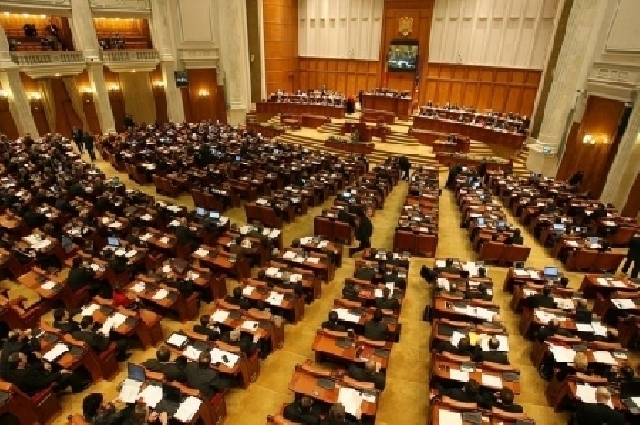Rights and Responsibilities for the Romanian MPs
The amendments to the statute of the Romanian MP were adopted on Tuesday in Bucharest. The new statute strengthens the immunity of both senators and deputies, against the background of close monitoring of the Romanian judiciary by the EU partners.

Corina Cristea, 23.01.2013, 13:49
After heated debates, but with a large majority of votes, a new statute of the Romanian MP was adopted on Tuesday. In keeping with the new statute, the Romanian senators and deputies will have some restrictions with regard to spending public money, will not be allowed to hire relatives within the parliament’s apparatus, but will be able to hold other offices, if they are clearly established by law, in the education and research fields. The procedure regarding the situations in which a member of parliament is detained, arrested or searched has remained unchanged, but the new document reads that an MP office can only be terminated when there is a final ruling on proven incompatibility or conflict of interests.
In keeping with the previous regulations, Parliament’s judicial committees analyzed requests for criminal investigation of members of parliament and provided an advisory report, followed by compulsory voting in plenary session. Under the new provisions, there will be no parliament voting if the committees reject prosecutor’s requests, and the latter will have to provide concrete and solid evidence. According to the Speaker of the Chamber of Deputies, Valeriu Zgonea, the new statute includes provisions that are also valid for members of the European Parliament, and was adopted by the specialized commission through political dialogue. The statute had to be changed, Valeriu Zgonea also stressed, as the previous one had been drawn up back in 2006, when Romania was not a member of the European Union and the National Integrity Agency did not exist.
Valeriu Zgonea: “The Public Ministry and the National Integrity Agency accepted our amendments. We established a set of procedures that help us know exactly, from the very beginning, what we are supposed to do for four years of mandate.”
According to MP Ioan Oltean, a member of the opposition Liberal Democratic Party, the new statute has strengthened deputies and senators’ immunity, and glossed the older one over.
Ioan Oltean: “ Immunity was strengthened, and conflict of interests encouraged. That is why the Liberal Democratic Party’s parliamentary group voted against it.”
The MPs members of the Dan Diaconescu’s Party of the People, which is for the first time represented in Romania’s Parliament, refused to participate in the debates.
Senator Tudor Barbu explains: “We believe that besides the normal immunity that a member of parliament is entitled to politically, and this is regulated at European level, provided it has no criminal implications, there should be no other provision either in the future Constitution, or in any other regulations.”
Six years after its EU accession, Romania is still perceived as a country where the fight against corruption should be fiercer. The previous monitoring reports criticized the Romanian parliament for trying to hamper certain criminal investigations.






























